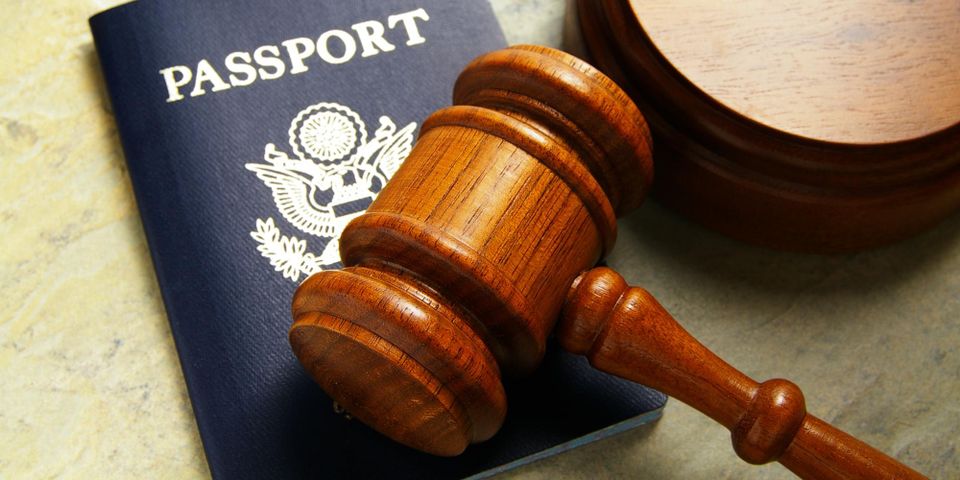Do You Need an Immigration Attorney to Become a U.S. Citizen?

The road to citizenship in the United States is notoriously considered a competitive, difficult road. While some recommend turning to an immigration attorney to handle your application, hiring one isn’t always necessary. The process of applying is straightforward if you have a clean record, but even innocuous issues with your application could get you rejected. Highlighting any weaknesses in your eligibility will help you determine whether or not you need to hire an attorney to proceed, but before you can do so, you need to have a firm understanding of what the application requires of a new citizen.
Starting the Application Process
To become a U.S. citizen, you should first file an N-400, the Application for Naturalization, to United States Citizenship and Immigration Services (USCIS). To be eligible to submit this form, you must:
- Be 18 years or older.
- Have legally lived in the United States for five years (three if you’re married to a U.S. citizen).
- Have physically remained in the U.S. during the allotted time previously stated.
- Have good moral character.
- Have basic knowledge of the English language.
- Have basic knowledge of U.S. government and history.
- Be willing to take the Oath of Allegiance if granted citizenship.
If you have no issue with any of these points, then you can easily file your N-400 on your own.
When to Hire an Immigration Attorney
Bringing legal help into the equation can be expensive and time-consuming, but sometimes, this step can be the difference between becoming a citizen and getting rejected. If any of the following applies to you, then speak to an immigration attorney before continuing the application process.
You Aren’t Confident in Your Mastery of English
 You don’t need to be fluent in English to be a U.S. citizen, but you do need to fully understand the N-400 form in English to fill it out on your own. If you are not sure you can fill it out properly, an attorney, or at least someone with a fluency of English, can help walk you through it and fill it out.
You don’t need to be fluent in English to be a U.S. citizen, but you do need to fully understand the N-400 form in English to fill it out on your own. If you are not sure you can fill it out properly, an attorney, or at least someone with a fluency of English, can help walk you through it and fill it out.
You Have Been Detained by the Police
Even if the conviction has been expunged or the charge has been dismissed, either case can still count against you during this process. An attorney will help you get ahead of this obstacle in the naturalization process by explaining the circumstances of your detainment. This advice is particularly pertinent if you have been convicted of a misdemeanor, as it can result in serious consequences that may revoke your permanent residence, let alone your future citizenship.
You Left the Country for More Than 180 Days During Your 5 Years of Residence
This issue is best left to the attorney to address, as it will require analysis and a thorough explanation.
You Have Tax Issues
Whether you filed late or missed filing completely and have overdue payments, problems with your taxes are a big issue on your application, which will require legal assistance to overcome.
You Got Divorced Shortly After Receiving a Green Card Through Marriage
This is a famous red flag for the naturalization process, often referred to as a “green card marriage” if the only reason for the union was to give one spouse the fast track to permanent residence in the U.S. The attorney will help you to establish the legitimacy of the marriage and why it ended to sidestep this issue.
You Have Other Personal Issues
If you can’t cover child support or alimony, or you quit a job shortly after getting a green card through said work, those are also potential issues when filing for naturalization.
You Have a Parent Who Is a U.S. Citizen
Speak with an immigration attorney before filing to confirm your eligibility. You are automatically a citizen through your relation to your parent if they are a confirmed U.S. citizen. If this is the case for you, the money you would spend on your naturalization application should instead pay for a proof of citizenship application.
The Rest of the Process
Biometrics
Once you iron out these complications and your application is received, you will receive a letter from USCIS requesting a visit to the local Application Support Center. There, you will submit your biometrics (fingerprints), as well as participate in a standard background check. If you used an attorney for your N-400, they will walk you through tougher questions that may be asked during this step. The letter may ask for additional documents, which you should send in as soon as possible.
The Interview & Citizenship Tests
If you pass this round, USCIS will then send you a request for an interview. If you opted for an attorney, they will once again prepare you for your interview. Immediately after, you will take two tests: English and Civics (which covers U.S. history and government facts). To prep for both, there are numerous study materials online to guide you.
The Naturalization Ceremony
If all goes well, upon saying the Oath of Allegiance at your naturalization ceremony, you will officially become a citizen of the United States.
Do you think that you need to hire an immigration attorney before beginning your path to citizenship? The experienced attorneys at the Law Offices of Iannuzzi and Iannuzzi will guide you with excellent legal representation during your naturalization process. Providing legal services in Manhattan and around the country for over 85 years, this third-generation practice will review your case for free to identify its strengths and weaknesses before you proceed. To book your initial consultation, call (212) 227-9595, or visit their website for more information.
About the Business
Have a question? Ask the experts!
Send your question

